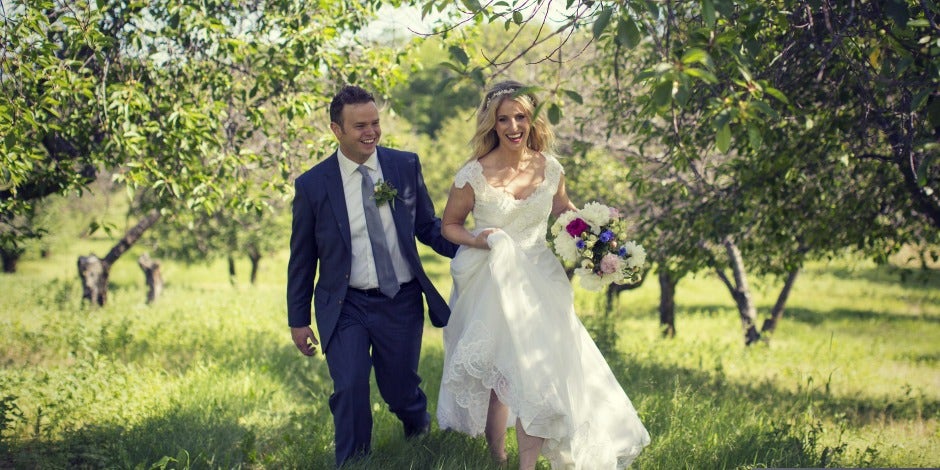
He had less than a year to live.
By Abby Sacia — Written on Aug 02, 2017
Photo: courtesy of the author / Leah Renee Photography

In April of this year, I received a terrible text message from my mom. My dad had gone into the hospital for what appeared to be gallstones. During surgery, the doctors discovered a tumor. And at every turn, it seemed to get worse. The tumor was in his pancreas. He had adenocarcinoma. His cancer had spread to his liver. He had less than a year to live.
It was a terrifying, emotional, all-consuming time. I immediately started questioning how I could be with my dad more, how I could support him, and ultimately, I questioned the nature of life and death itself. What is death? What is dying? What am I to learn from this? Where can I look for tenderness and beauty in this experience?
And perhaps a little selfishly, I desperately wanted to get married while my dad was alive.
I had been with my now-husband, John, for four years, and we both knew we would get married eventually. But a wedding wasn’t currently on the docket when we learned of my dad’s cancer. And planning a wedding while your parent is sick is certainly not easy.
So yes, I asked John if we could get married, and soon. To my delight, he wholeheartedly agreed. We succeeded in planning a wonderful wedding (in my opinion) in two months, and I learned a lot about life and myself in the process that I’d like to share as advice. Here's what my wedding day taught me.
1. Don’t be perfect.
Thomas Mann once wrote, “We do not like to speak of beauty. Does not the concept, the word, exude boredom? ...Perfect beauty, which needs no apology, is so dreary. For emotion actually wants to find something it can forgive; otherwise, it turns away with a yawn.”
Mann may be talking about a young man’s handsomeness, but this concept really applies to everything, including your wedding. There is a lot of pressure, through Pinterest and theknot and weddingwire and maybe your mom to have your wedding be “perfect” down to the last detail. The flowers, the table settings, the food, the cake, the ceremony — all perfect, perfect, perfect!
But human emotion needs imperfections to find beauty. In Japanese aesthetics, this is called wabi-sabi, the concept of beauty that is imperfect, impermanent, and incomplete. And for me, this perfect imperfection was key to a beautiful wedding.
For example, during our (very emotional) ceremony, I started saying our vows and putting the ring on John’s hand. I was extremely focused. So focused, in fact, that it took me a second to hear him say under his breath, “Wrong hand! Wrong hand!” Realizing my mistake, I laughed and said to the audience, “Wrong hand! Can I try that again?” Our guests roared with laughter, and then I proceeded to put the ring on the correct hand and say the rest of the vows with meaning and tenderness.
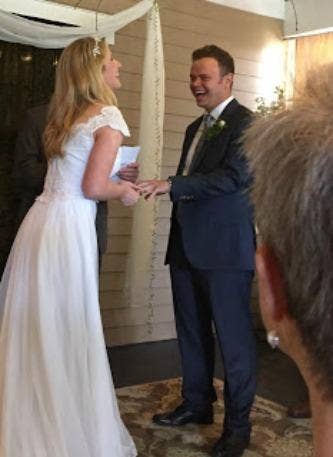
I felt kind of bad for making that mistake, but afterward, multiple people came up to me and thanked me for making that mistake, saying that everyone really needed the levity at that point in the ceremony. Emotion wants to find something it can forgive; otherwise, it turns away with a yawn.
2. What matters, matters.
In a way, it was a gift for me to have something way more important to focus on than planning a wedding. Of course, the process of wedding planning can be fun, but it can also be all-consuming, taking over your life and even your personality. Every time that temptation came up, I came back to what was most important: that my family and John’s family were with us.
Your thing that matters may be different than mine. Maybe it’s that you get to be in a beautiful place that you love. Maybe it’s that you want your guests to be really comfortable. Maybe it’s that you want space with your new spouse, just you two. But whatever it is, keep coming back to it and let it guide your choices. Having values, in wedding planning as in life, makes life richer and makes decision making easier.
3. Have loose expectations.
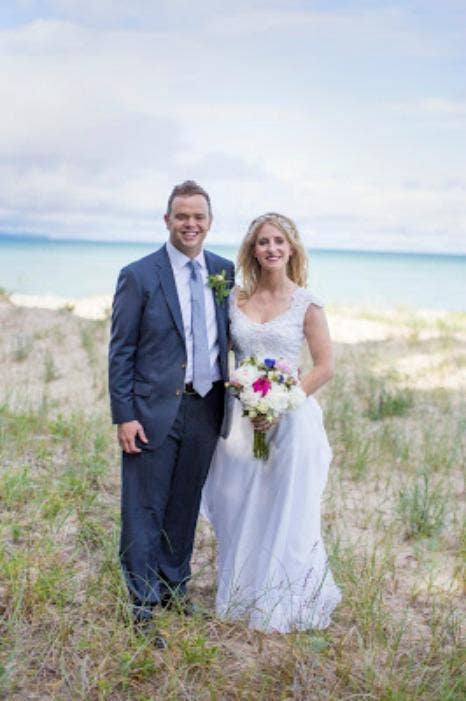
Speaking of decisions, they are a lot easier to make if you have loose expectations. I’ll admit that this is more of a life philosophy of mine, but this lesson really was salient for me while planning a wedding while your parent is sick.
A lot of people dream about their wedding down to the very last detail from the time they are little. And while I’m not completely immune to that, I really let go of crystal clear expectations of what the wedding would look like.
One of my uncles is a professional musician and I let him pick the music he played for the ceremony. It was absolutely shimmering — much more so than if I had mulled over a dozen pieces and picked one. My other uncle blows glass and I asked him to blow vases for the flowers. I didn’t give him much direction at all, and each and every piece turned out beautiful, unique, and special.
If I had had a specific vision and insisted that each detail be executed to a T, that magical, organic quality of the art that filled the space would have been lacking for me. Besides, having loose expectations means a lot less decision-making and a lot less stress.
4. Accept the yin and the yang.
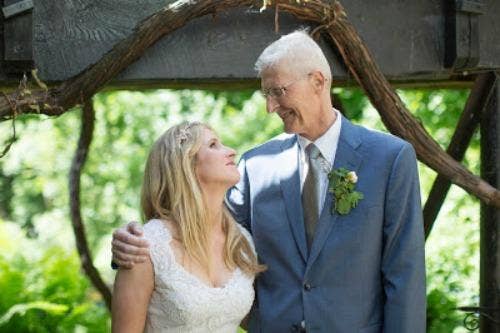
I’ve only been to one Jewish wedding, but it was one of my favorites. One of the most iconic parts of a Jewish wedding is the breaking of the glass, which I remember of this wedding in vivid detail. The cream colored tablecloth, the sound of the glass breaking, the look of glee on the bride and groom’s faces — there was something incredibly joyful, but also tinged with pain, about this tradition.
Only later did I read, in further detail, about the meaning of the breaking of the glass. There are a couple different explanations, but the one I like the best is this: as a symbol of the destruction of the Temple of Jerusalem, the breaking of the glass reminds us of sorrow even during our most joyful times.
My wedding was tinged with the sorrow of my father’s illness and mortality. But all weddings have just a touch of sadness, as they are the closing of one door of life and the opening of another. Leaning into the duality of this experience of joy tied to sorrow is liberating, and never more acute than at occasions like weddings. Even in the white space of the yang, there is a small space of darkness. Hopefully, I will remember the opposite while in the dark expanse of the yin.
Related Stories From YourTango:
5. Practice gratitude.
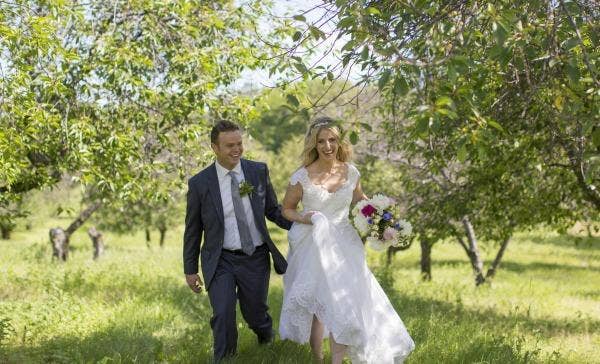
All photos: Leah Renee Photography
Nothing is more radiant than sincere gratitude. Nothing is more precious than this very moment. I could not have been more grateful for the opportunity to get married to a wonderful man, could not have been more grateful for the beautiful day, could not have been more grateful for the presence of my father on this memorable occasion.
Sincere thankfulness and humbleness are infectious, and the one very necessary component in a wedding, as in a marriage, as in life.
Coping with a terminally ill parent is challenging, but check out the video below on tips for dealing with this difficult process:
